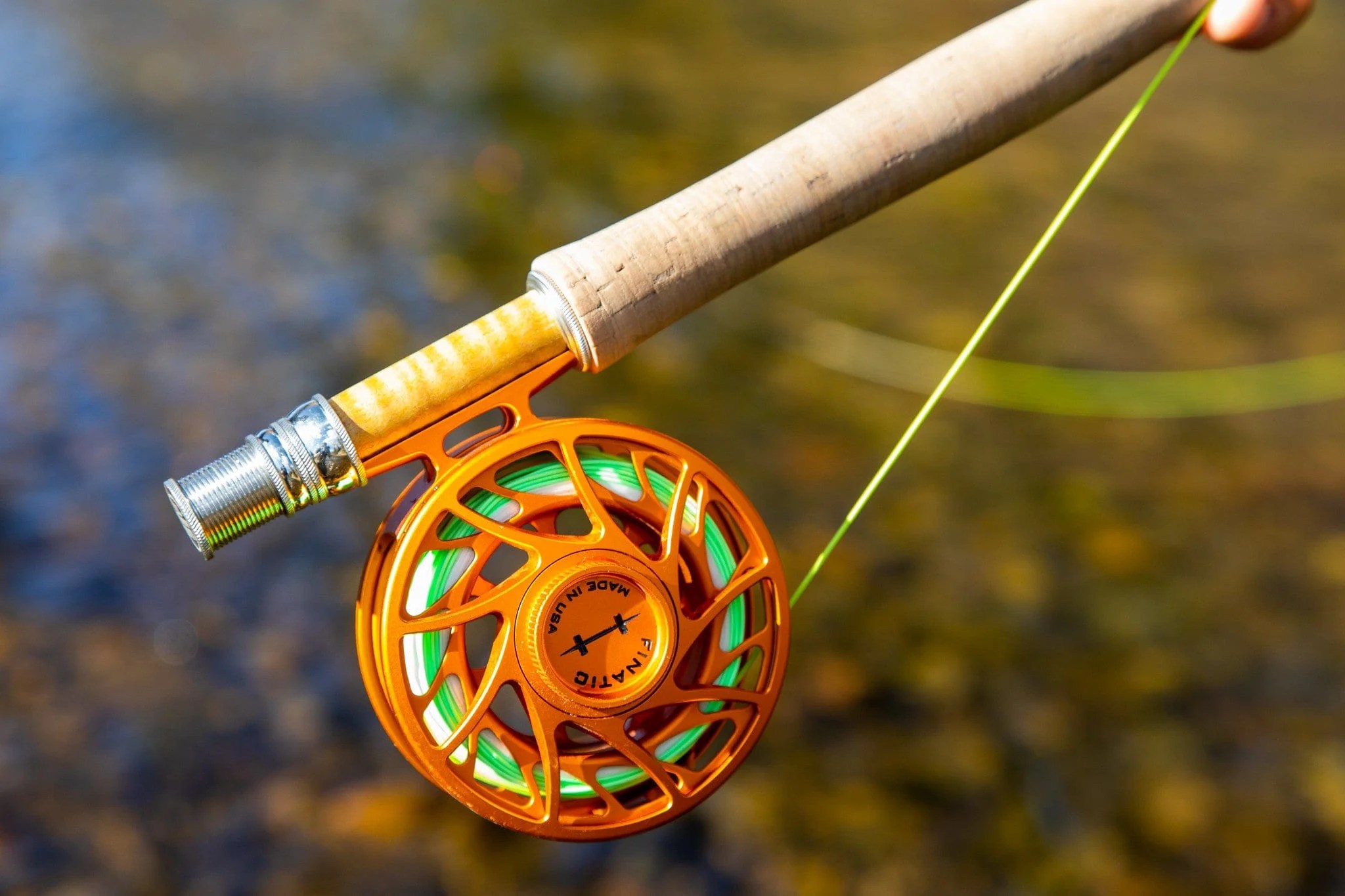Unlocking the Stream: Your Guide to Top Fly Fishing Rods

The whisper of the line, the gentle tug on the rod, the flash of silver as a trout rises – fly fishing is an art form. But like any art, the right tools are essential. Choosing a fly rod can feel overwhelming, a labyrinth of weights, lengths, and materials. This guide will illuminate the path, helping you discover the perfect rod to unlock the secrets of the stream.
Imagine standing waist-deep in a crystal-clear river, the sun warming your face as you cast your line with effortless grace. The right fly fishing rod is an extension of yourself, a conduit connecting you to the rhythm of the water and the thrill of the catch. Whether you’re a seasoned angler or just starting your fly fishing journey, understanding which rod suits your needs is crucial.
The quest for the perfect fly fishing rod begins with understanding the basics. Rod weight refers to the line weight it's designed to cast effectively. A 5-weight rod, for example, is a versatile choice for trout fishing, while heavier rods are suited for larger fish like salmon or steelhead. Rod length also plays a crucial role, influencing casting distance and accuracy.
The history of fly fishing rods is a fascinating evolution from humble beginnings to the sophisticated instruments we use today. Early rods were crafted from natural materials like wood and bamboo, evolving through fiberglass to the high-performance graphite rods that dominate the market now. This progression reflects a relentless pursuit of lighter, stronger, and more responsive tools to enhance the fly fishing experience.
Choosing a top-tier fly fishing rod can significantly improve your casting accuracy, presentation, and overall fishing success. However, common issues like incorrect rod weight selection or improper casting technique can hinder your progress. This guide addresses these challenges, providing you with the knowledge to make informed decisions and maximize your enjoyment on the water.
Fly rod action refers to the rod's flexibility. Fast-action rods are stiff, offering powerful casts and quick hooksets, ideal for windy conditions or larger flies. Slower-action rods are more flexible, providing delicate presentations and a softer feel, perfect for smaller streams and dry fly fishing. For example, a beginner might benefit from a medium-action rod, offering a balance of power and finesse.
Benefit 1: Increased Casting Accuracy. A well-balanced fly rod, matched to your casting style and line weight, drastically improves casting accuracy. This allows you to place your fly precisely where the fish are feeding, increasing your chances of a successful hookup.
Benefit 2: Enhanced Fish Fighting Ability. A rod with the right action and power will provide the backbone needed to control and land larger fish, minimizing the risk of break-offs and maximizing your chances of landing a trophy.
Benefit 3: Improved Presentation. The right fly rod will allow you to present your fly delicately and naturally, enticing even the most wary fish. This is particularly important for dry fly fishing, where a subtle presentation is key.
Advantages and Disadvantages of High-End Fly Rods
| Advantages | Disadvantages |
|---|---|
| Improved Casting Performance | Higher Cost |
| Lighter Weight and Increased Sensitivity | May Require More Careful Handling |
| Greater Durability | Steeper Learning Curve for Beginners |
Best Practices:
1. Match Rod Weight to Line Weight: Using the correct line weight for your rod ensures optimal performance and prevents damage.
2. Practice Your Casting Technique: Regular practice is key to developing a smooth and accurate casting stroke.
3. Clean and Maintain Your Rod: Regular cleaning and maintenance will prolong the life of your fly rod.
4. Choose the Right Rod Action for Your Fishing Style: Consider the type of water you fish and the species you target when selecting a rod action.
5. Invest in Quality Fly Line: A good fly line is just as important as a good fly rod.
Frequently Asked Questions:
1. What is the best fly rod for beginners? A 5-weight, 9-foot rod is a great all-around choice for beginners.
2. What is the difference between a fast-action and slow-action rod? Fast-action rods are stiffer, while slow-action rods are more flexible.
3. What is the best material for a fly rod? Graphite is the most popular material for fly rods due to its strength, lightness, and sensitivity.
4. How do I choose the right fly rod length? Rod length depends on the type of water you fish and the species you target.
5. How do I care for my fly rod? Clean your rod after each use and store it in a protective case.
6. What is the best fly line for my rod? Consult your rod manufacturer's recommendations for the best fly line match.
7. How often should I replace my fly line? Fly lines typically last for several seasons with proper care.
8. What are some good resources for learning more about fly fishing? Local fly shops, online forums, and books are all great resources.
Tips and Tricks: Learn the double haul cast to increase casting distance and accuracy. Practice mending your line to control its drift and presentation.
The perfect fly fishing rod is more than just a tool; it's an investment in your passion. By understanding the nuances of rod weight, action, and material, you can choose the ideal companion for your fly fishing adventures. From the whispering streams to the roaring rivers, the right rod will empower you to connect with nature, hone your skills, and experience the thrill of the catch. Take the time to research, ask questions, and find the rod that resonates with your fishing style. The rewards will be immeasurable, enriching your time on the water and fostering a deeper appreciation for the art of fly fishing. So, equip yourself with knowledge, choose wisely, and embark on a journey of discovery, one cast at a time.
Fleur de sel saarland a gourmet treasure
Unlocking fort myers employment opportunities
Benjamin moore paint metal surfaces a deep dive













